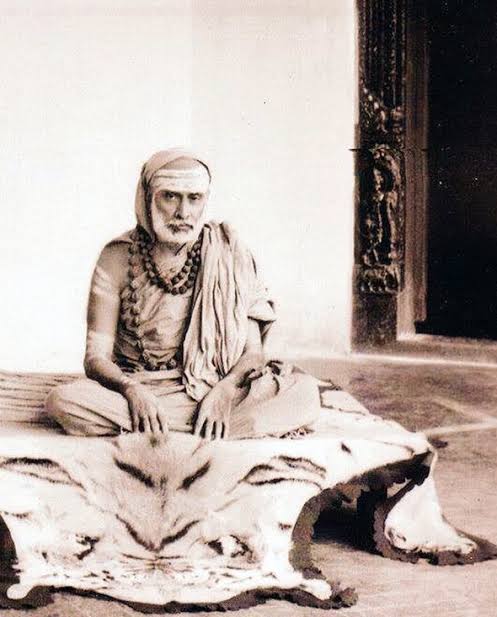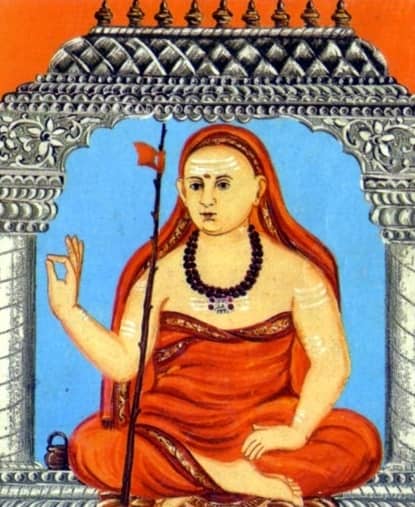
Once Sri Sri Chandrasekara Bharathi talked about the avatArAs.
The devas and the asurAs were born to different mothers from the same father. Knowing that their nature and mental make up were different. It was decided that they will stay far away from each other as possible
The devas and the asurAs were born to different mothers from the same father. Knowing that their nature and mental make up were different. It was decided that they will stay far away from each other as possible

2/ the devAs in the devalokAs and the asurAs in asuraloka. Except when an odd asura coveted and occupied devaloka - in the beginning of the kalpa this separation was the norm. In the treta yuga when the avatArA of sri rAmacandra mUrthy happened the devAs lived in Ayodhya and
3/ kiSkinda and the asurAs in Lanka and daNdakAraNya. That is instead of two different worlds they existed in earth in different places. Even here unless the asurAs I haughtiness tried to conquer the world or if devAs entered their domain such as daNdakAraNya to perform penance
4/ strife was rare. In dwApara during kRuSNa avatAra the asurAs or devatAs were found in the same family. kRuSNas own maternal uncle was an asura. One aunt's (cousin sister from the paternal side) son SiSupAla was an asura whe another's children the Pandavas were devas. The
5/ pAndavAs paternal cousins were asurAs. In this case there was strife among them from birth. There was constant conflict with very little times of peace because of their nature. This ultimately led to the mahAbharata war and the destruction of the clan. In kali the devAs and
6/ asurAs are not content in being in different worlds or different places or even within the same family. Both parties now prefer to live in the same body. In these days it is difficult to say if a person is deivic or asuraic. He appears like a devA sometime and the next moment
7/ turns into an asura. If in some aspects he behaves like a devA in others he behaves like an asurA. Because of the admixture of these guNas his life is one of constant conflict. There is some evil in the good he does and some good in the evil he does.
When the devAs and asurA
When the devAs and asurA
8/ s were in different worlds the Lord took it upon himself to protect the devAs alone. When separated in the same world he fought the asurAs along with the vAnarAs (devas incarnate). When they appeared in the same family he listened to what each wanted and based on their wishes
9/ stayed with the pAndavAs and advised them but he only remained a witness to the war. In these when devAs and asurAs reside in the same person no one thinks of God. He therefore remains a witness. But it is his authority that determines the outcome of war and confers the
10/10 the fruit of the action He therefore stays inside of us observing passively without interfering in the conflicts inside of us.
#sringeri
From gurukrupavilasam volume 2
#sringeri
From gurukrupavilasam volume 2

+
(Did not add " ". This thread after the first sentence must have been in quotes
(Did not add " ". This thread after the first sentence must have been in quotes
• • •
Missing some Tweet in this thread? You can try to
force a refresh








